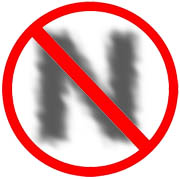 Slavery
of Africans and their descendants constitutes one of the most egregious
wrongdoings of European colonialism. While this particular
brand of slavery is officially a thing of the past, the mindsets it created
and fostered have not been erased altogether so far. Neither have
anger and emotional scars disappeared among those whose forefathers were
victims of slavery and of post-slavery lynching and other crimes against
humanity. These people often still encounter racism, be it flagrant or
subtle (“with
a smile”),
and their sensitivity to it is heightened to a degree that few other
people fully appreciate. Slavery
of Africans and their descendants constitutes one of the most egregious
wrongdoings of European colonialism. While this particular
brand of slavery is officially a thing of the past, the mindsets it created
and fostered have not been erased altogether so far. Neither have
anger and emotional scars disappeared among those whose forefathers were
victims of slavery and of post-slavery lynching and other crimes against
humanity. These people often still encounter racism, be it flagrant or
subtle (“with
a smile”),
and their sensitivity to it is heightened to a degree that few other
people fully appreciate.
It
is therefore extremely important that other people, especially Europeans
and people of European descent, treat this issue with
respect and compassion. One of the most important rules is not to use
“the N word” (and this includes the milder, original version “negro”)
in English. It simply won’t do to argue
“I don’t
mean anything by it. It’s perfectly inoffensive
to use the equivalent in my language.” I have witnessed African Americans
being offended by similar-sounding equivalents used in other languages.
Yes, some African Americans use “the N word”
among themselves to be “outrageous” or for whatever other reason. This
does not mean that it is all right for others to do so.
Don’t argue! It isn’t a matter for debate. Don’t complain! Don’t brush it off
as meaningless political correctness! It isn’t a matter for you to judge.
Do the decent and compassionate thing: don’t
use it!
It’s loaded, super-charged, and it hurts.
So what can you say? Different countries have different conventions to name their citizens
of African ancestry. If you absolutely have to refer to them in “racial” terms, US Americans of non-specific or uncertain
Sub-Saharan African origin are best referred to as “African American,”
and even (capitalized) “Black” is better than any “N word” and “Colored.”
If the
country of
origin is known, then you should use it, as in “Kenyan American,” “Mozambican
American” or “South African
American” (any of which can be used for people of other “races”
as well). This is consistent with a general naming convention (for instance
“Dutch American,” “German American,” “Canadian
American,” “Mexican American” and “Chinese American”).
I refer to one of my American acquaintences as a fellow “German American”
if her country of origin is ever relevant. She identifies
herself as such. The fact that she has African ancestry as well is
obvious only to those that have set eyes on her, and people that don’t
know anything else about her obviously jump to the conclusion that she
is African American, which I guess she is in a round-about way.
Fortunately, it looks as though we are moving toward a time when none of these
labels will be considered relevant and necessary.
Reinhard “Ron” F.
Hahn (Member of Lowlands-L)
Seattle, Washington, USA, April 2, 2008
Based on an idea of Jonny
Meibohm (Member of Lowlands-L)
Bremerhaven, Lower Saxony, Germany, March 28, 2008 |
|

